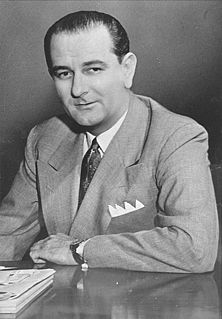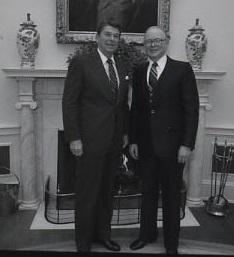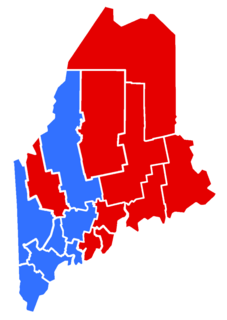
The 1978 United States Senate elections in the middle of Democratic President Jimmy Carter's term. Thirteen seats changed hands between parties. The Democrats at first lost a net of two seats to the Republicans, and then one more in a special election. Democrats nevertheless retained a 58-41 majority.

The 1954 United States Senate elections was a midterm election in the first term of Dwight D. Eisenhower's presidency. Eisenhower's Republican party lost a net of two seats to the Democratic opposition. This small change was just enough to give Democrats control of the chamber with the support of an Independent who caucused with them.

The 1954 United States House of Representatives elections was an election for the United States House of Representatives in 1954 which occurred in the middle of President Dwight Eisenhower's first term. Eisenhower's Republican Party lost eighteen seats in the House, giving the Democratic Party a majority that it would retain in every House election until 1994.

United States gubernatorial elections were held on November 5, 2002 in 36 states and two territories. The Republicans won eight seats previously held by the Democrats, as well as the seat previously held by Minnesota governor Jesse Ventura, who was elected on the Reform Party ticket but had since renounced his party affiliation. The Democrats won 10 seats previously held by the Republicans, as well as the seat previously held by Maine governor Angus King, an independent. Overall, the Republicans suffered a net loss of one seat while the Democrats made a net gain of three. The Republicans managed to maintain their majority of state governorships, but it was reduced to a margin of only two seats. The elections were notable for the sheer number of state governorships that changed parties – 20 in total, constituting more than half of the seats up for election. Additionally, a number of Democratic and Republican gains occurred in states that typically favor the other party; for instance, Republican candidates won the usually Democratic states of Maryland, Hawaii, Minnesota and Vermont, while Democratic governors were elected in Republican-leaning states like Wyoming, Tennessee, Oklahoma and Kansas.
The Maine Democratic Party is the affiliate of the Democratic Party in the U.S. state of Maine. For much of the time after the Civil War, the Democrats were a minor player in a political scene dominated by the Republican Party. However, during the 1950s, Edmund Muskie led an expansive political insurgency culminating in his election as Governor of Maine and successive Democratic elections to both state and national offices. From 2012 to 2019, despite having a Republican Governor in Paul LePage, the party remained strong, holding key offices in the state government and U.S. Congress and maintaining a majority in the Maine House of Representatives for 6 of LePage's 8 years.

The 2010 United States elections were held on Tuesday, November 2, 2010, in the middle of Democratic President Barack Obama's first term. During this midterm election year, all 435 seats in the United States House of Representatives and 37 of the 100 seats in the United States Senate were contested, along with 39 state and territorial governorships, 46 state legislatures, four territorial legislatures and numerous state and local offices. Approximately 82.5 million people voted.
The following table indicates the party of elected officials in the U.S. state of Maine:
Richard A."Rick" Bennett is an American politician from the state of Maine and a current resident of Oxford, Maine. Bennett is the President and CEO of ValueEdge Advisors, a firm he founded in summer 2014 to help institutional investors engage with their portfolio companies. From 2006 to 2014 he served as CEO of The Corporate Library and then Chairman or Vice Chairman of GMI Ratings, its successor company, an independent research firm focusing on corporate governance, director/executive compensation, and forensic accounting. For six years, Bennett was included in the NACD Directorship's "100 most influential people" in the boardroom and corporate governance community.

Janet Trafton Mills is an American lawyer and politician serving as the 75th Governor of Maine, since January 2019. She previously served as the Attorney General of Maine on two separate occasions.

The 2011 United States elections were held on Tuesday, November 8. This was an off-year election, in which the only seats up for election in the United States Congress were special elections. There were also four gubernatorial races, including a special election in West Virginia. There were also state legislative elections in four states and judicial elections in three states; as well as numerous citizen initiatives, mayoral races, and a variety of other local offices on the ballot.

The 1966 Maine gubernatorial election took place on November 1, 1966. Incumbent Republican Governor John Reed, had been elected to finish the term of Clinton Clauson in 1960, was then re-elected in 1962 and became the state's first four-year Governor. Reed was seeking a second full four-year term, and was challenged by Democrat Kenneth M. Curtis. Curtis defeated Reed, beginning a twenty-year period of Republican isolation from the Blaine House.

The 1960 Maine gubernatorial special election was a special election held to officially elect a governor following the death of Governor Clinton Clauson. It took place on November 8, 1960 with Republican Governor John Reed defeating Democrat Frank M. Coffin.

The 1958 Maine gubernatorial election took place on September 8, 1958. Incumbent Democratic Governor Edmund Muskie, was term limited and seeking election to the United States Senate, thus did not run. Democrat Clinton Clauson, then mayor of Waterville, unexpectedly defeated Muskie's chosen Democratic candidate in the primary, and faced off against the popular previous two term Republican Governor, Horace Hildreth in the general election. Hildreth was the heavy favorite to win, however Clauson was able to narrowly defeat him, retaining the Blaine House for the Democrats.

The 2016 United States elections were held on Tuesday, November 8, 2016. During this presidential election year, the President of the United States and Vice President were elected. In addition, elections were held for all 435 voting-member seats in the United States House of Representatives and 34 of the 100 seats in the United States Senate to determine the 115th Congress.
Teresea M. "Terry" Hayes is an American politician from Maine who served as the Maine State Treasurer and a candidate for Governor of Maine in 2018. A political independent, Hayes represented part of Oxford County, Maine, including her residence in Buckfield, Maine, as a Democrat from 2006 to 2014. She was unable to seek re-election to the Maine House of Representatives in 2014 due to term-limits.
Burleigh Martin was an American politician from Maine. A Republican from Augusta, Maine, Martin served in the Maine Legislature from his election in 1922 until 1932. From 1923-1928, Martin served in the Maine House of Representatives. From 1927-1928, Martin was the House Speaker. Elected to the Maine Senate in 1928, Martin served until 1932. During his final term (1931-1932), Martin was elected Senate President.

The 2016 United States House of Representatives elections in Maine were held on November 8, 2016, to elect the two U.S. Representatives from the state of Maine, one from each of the state's two congressional districts. The elections coincided with the 2016 U.S. presidential election, as well as other elections to the House of Representatives, elections to the United States Senate and various state and local elections. The primaries were held on June 14.

The 2020 United States elections will be held on Tuesday, November 3, 2020. All 435 seats in the United States House of Representatives, 34 of the 100 seats in the United States Senate, and the office of President of the United States will be contested. Thirteen state and territorial governorships, as well as numerous other state and local elections, will also be contested.

A Massachusetts general election was held on November 2, 1954 in the Commonwealth of Massachusetts.
















